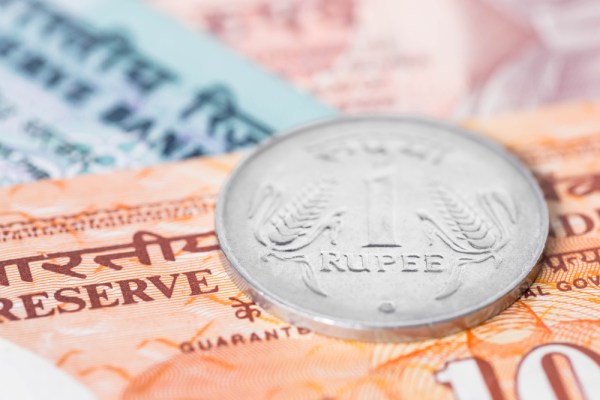Alibaba-backed Paytm, one of the bigger e-commerce startups competing against Amazon in India, is raising money again, just months after a reported $680 million round. Sources close to the company say that Paytm is now looking to raise $400 million by June to help with the launch of Paytm’s new payments business, Paytm Payment Bank.
The news comes at the same time that we’ve also heard of some potential consolidation plays. Paytm has been in early talks with Flipkart, India’s e-commerce leader, over how the two could work together more closely to compete better against not only global giants Amazon but large local competitors like Snapdeal.
One option raised was even for Flipkart and Paytm to merge. “Early talks have been about creating a structure where the marketplaces of Paytm and Flipkart could be combined,” a person directly familiar with the early talks told TechCrunch earlier this month.
While dwarfed in size when compared with China, the e-commerce market in India is one of the world’s fastest growing, with eMarketer projecting its value to rise to $55 billion by 2018, up from $14 billion in 2015. Much of this is driven by increased online shopping through mobiles and smartphones.
In order to fund customer discounts and fuel their expansion, Flipkart, Snapdeal and Paytm have collectively raised over $4 billion since 2014. That was also the same year that Amazon CEO Jeff Bezos vowed to invest $2 billion in the company’s India operations.
The decision for Paytm to raise more money instead was taken earlier this month in Hangzhou, China, where Paytm founder Vijay Shekhar Sharma attended the company’s board meeting. The new payments business will be 51% owned by Sharma himself, with the remaining 49% by the company. Most of the fresh funding will be used to set up and expand the new bank, which is being developed as a way of growing Paytm’s presence across the bigger e-commerce marketplace.
“Earlier, we were planning to raise the funding for our payments business separately [but] now we have decided to raise more funding at a consolidated level,” said Sharma in an interview with TechCrunch. This, according to him, could also help Paytm attract a stronger valuation — key in period when e-commerce marketplaces are being scrutinized by investors and in some cases valued flat or marked down during funding rounds.
So far, Paytm has disclosed around $700 million in funding from investors that include Alibaba. Paytm was valued at around $2.8 billion during its last funding round in August last year when it raised $680 million from Alibaba affiliate Ant Financial.
Incubated in 2011 with around $20 million from the Mobility Fund backed by SAIF Partners, Paytm has grown into a mobile commerce powerhouse in India, with over 100 million mobile wallets across the country, mainly used to buy goods in its marketplace.
The company wants to leverage this with a deeper move into payments and banking. In August last year, Paytm received a payment bank license from India’s banking regulator. Its aim is to have 500 million users by 2020 — which, even in the rapidly growing Indian e-commerce market, is a really ambitious target.
Paytm already had a strategy in place to make its mobile wallet usable in places outside of its own marketplace, as Sharma described it to TechCrunch in December. You can use Paytm’s existing mobile wallet outside of its own walled garden to pay for goods and services in India. They include Uber rides, filling up your car with gas and groceries from Big Basket.
Expanding as a mobile bank would help Paytm expand those payment services to more third-party apps and platforms, potentially those that do not have their own banking licenses, like Flipkart. It will also allow users to save money.
Paytm’s mobile payment-led strategy and positioning will be put to the test when the company closes its upcoming $400 million funding round. Investors are already questioning high cash burns and valuations of India’s top e-commerce companies.
“Over the past year, Tiger Global and SoftBank have led a funding spree in Indian startups,” a top investor in one of the biggest Indian e-commerce firms told TechCrunch. This has included a $500 million investment in Snapdeal from Alibaba, Foxconn Technology Group and its existing investor Softbank. “But with some reality checks sinking in, it will be far more tough for Flipkart and others to raise fresh funding at the valuation they would like.”
One of the issues is that there is a lot of fierce competition in the Indian market, leading to high marketing costs, aggressive discounts on items, and thinner margins.
This could also form part of the logic for why it would make sense for Paytm and Flipkart to work together, leveraging each other’s respective investments instead of building their own. Notably, Flipkart shut down in its own earlier banking effort PayZippy, which was built as a “closed” solution only usable on Flipkart’s own service.
“In fact, there could be an opportunity for the marketplaces of Paytm and Flipkart to merge, or work together with single payments platform,” said a person aware of the early discussions.
Flipkart is also undergoing some larger management changes, some believe as it heads for an IPO. They have included a new CEO, co-founder Binny Bansal, and the resignations of Mukesh Bansal as head of commerce and advertising business Ankit Nagori as chief business officer.
Pankaj Mishra is cofounder of FactorDaily, a stealth mode technology media startup.
